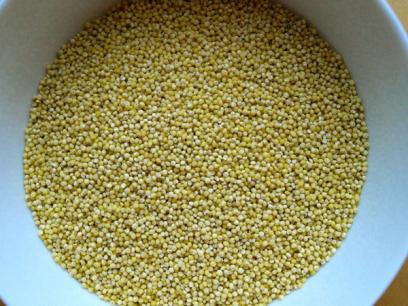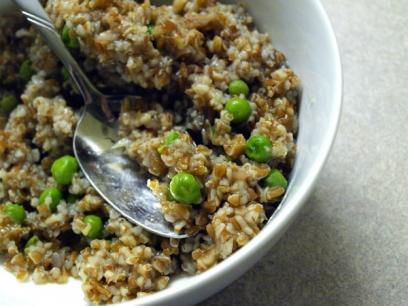Like most people who enjoy spending time in the kitchen, conquering new ingredients is something I live for. Earlier this month I decided that 2012 would be (cue fanfare music) “The Year of New Grains.” Between the growing debate about gluten-free and the emerging research about diets rich in whole grains, I figured now was as good of time as any to add a few into my kitchen repertoire. As of 2011, I could make a mean oatmeal and occasionally my brown rice came out better than Elmer’s glue.
So where does one start on a whole grain adventure? Wikipedia, of course. As it would happen, there are 18 whole grains on the unofficial list. Definitely enough to last me through 2012. Earlier this month I started at the top with bulgur, a grain that’s never made an appearance in my kitchen before.









